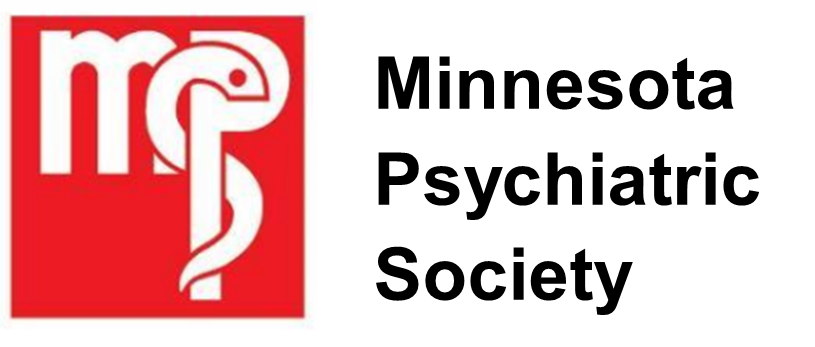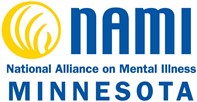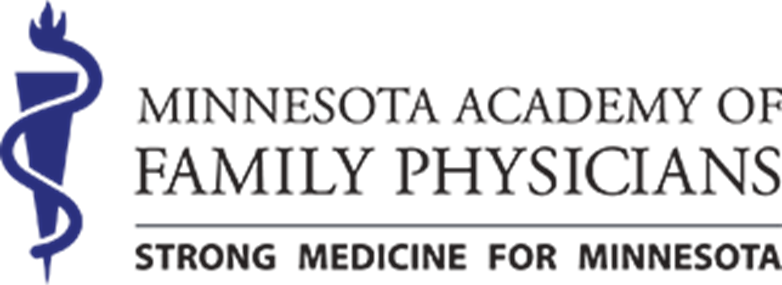The MMA has created this guide to empower physicians with tools to better connect patients with mental health services.
Please note that these resources apply to all forms of mental health services, including services for substance use disorders.
For a printable version of this physician guide, please click here.
Reviewed By:
FastTrackerMN.org is a free, searchable service locator with more than 600 mental health services and nearly 400 substance use disorder services across Minnesota, complete with real-time availability estimates for each. Information found on FastTrackerMN.org comes directly from Minnesota providers partnering in this unique collaborative partnership solution.
Today’s FastTrackerMN.org is new and improved. Between 2019 and 2023, the Minnesota Mental Health Community Foundation (MMHCF), which manages FastTrackerMN.org:
- conducted focus groups; reviewed research; and contracted with vendors to improve user experience, data management, and reporting assets;
- secured recurring state funds that allow FastTrackerMN.org to employ two full-time employees to facilitate the validity of search results; and
- implemented processes to improve the frequency with which provider community partners update service availability estimates, including temporary removal from the directory upon failure to update availability.
FastTrackerMN.org includes several useful fields for physicians, and Minnesotans at large, to search for mental health services, including:
- zip code/location
- type of service
- insurance plan accepted
- availability time range
- provider characteristic specifics
If you aren’t sure what to place in these search fields, there is no need to worry. FastTrackerMN.org is designed so everyday people can place general terms in the “search” and “keywords” fields for optimal results.
The best way to learn, however, is by doing—the more you use FastTrackerMN.org, the better you’ll become at searching.
Please consider these notes as you use FastTrackerMN.org:
- Directory members offering substance use disorder (SUD) services are expected to update availability daily.
- Directory members offering other mental health services are expected to update availability biweekly.
If a service you were searching for does not populate in results, there is a likely chance that those services do not exist or are not available at this time (e.g., psychological assessment for ADHD, autism, etc. are extremely limited in Minnesota). Please note that these searches are not made in vain – FastTrackerMN.org collects data on search activity to identify which types of services face the greatest shortages.
Finally, if you’re interested in receiving literature on FastTrackerMN.org to post and/or distribute at your clinic, please click here. If you’re interested in providing constructive feedback on how to improve FastTrackerMN.org, please click here.
If you’re interested in learning how to improve the efficiency of your FastTrackerMN.org searches, please refer to the following tutorial videos:
Click here to view a tutorial video on how physicians can use the FastTrackerMN.org search engine.
Click here to view a tutorial video on how everyday Minnesotans can use the FastTrackerMN.org search engine.
The Psychiatric Assistance Line (PAL) is a free service through which Minnesota healthcare professionals can speak with clinical mental health triage staff and/or receive psychiatry consults.
PAL is available Monday through Friday from 8am-6pm.
To access PAL services, healthcare professionals can:
- Call (855) 431-6468
- Schedule a psychiatric consultation online.
- Submit a question or comment online.
Please note that your time consulting with PAL is reimbursable by Minnesota Healthcare Programs and most commercial plans. To learn more, click here.
The Psychiatric Assistance Line (PAL) provides free, monthly CME-approved training to non-psychiatrist prescribers to build their confidence in psychopharmacology and other topics in mental health. To read course offerings and register for courses, click here. If these courses conflict with your schedule, you may consider free, asynchronous CME courses from national organizations like PriMed.
PAL also offers a free library of fact sheets and treatment protocols for a variety of topics in mental health. To access this library, click here.
Clinics can improve their ability to provide timely mental health services to their patients through the adoption and implementation of the Collaborative Care Model. The American Psychiatric Association (APA) has endorsed the Collaborative Care Model (CoCM) as the most evidence-based means to integrate mental health and primary care.
CoCM is a team-based model of care in which primary care providers (PCP) can call on an on-site behavioral healthcare manager (BHCM) to further assess and treat a patient who screens positive for depression or anxiety. The BHCM has remote access to a psychiatric consultant, who provides expertise and offers extra support if needed. An electronic registry, through which the BHCM and the psychiatric consultant monitor patient care, is central to CoCM.
In 2023, the Minnesota Legislature enacted a law that requires health plans in Minnesota to provide reimbursement for billing codes associated with CoCM services starting January 1, 2025 (MN Session Laws 2023, Chapter 57, pp. 42-43). The law does not apply to Medical Assistance or MinnesotaCare managed care plans or county-based purchasing plans.
To learn more about CoCM, click here.
To register for free, CME-approved APA training on CoCM for primary care providers, click here.
Physicians in emergency departments, psychiatric departments in hospitals, and residential treatment facilities can use the following tools to connect patients who board in emergency departments to available, appropriate services.
Mental Health Collaboration Hub (Youths)
The Mental Health Collaboration Hub (MHCH) is a free, secure online portal through which physicians can input de-identified case information for boarding youths to match them to available, appropriate treatment settings across Minnesota. Users of the MHCH are invited to join weekly video calls to discuss cases, treatment options, and capacity.
To learn more about MHCH, you can read their FAQ here or contact staff via email. You can register for the MHCH here.
Minnesota Mental Health Access Website (i.e., Bed-Tracker) (Youths + Adults)
The Minnesota Mental Health Access Website (i.e., Bed-Tracker) is a free search tool that is restricted to mental healthcare workers and shows the availability of an array of inpatient mental healthcare services (e.g., hospital beds, residential treatment beds) across Minnesota.
Bed-Tracker is jointly run by the Minnesota Hospital Association and the Minnesota Department of Human Services.
To learn more about Bed-Tracker, please visit its “About” page or use this link to submit a message to staff. To request access, please click here.
Here are some additional resources to share with your patients. For a printable version of this patient guide, please click here.
The 988 Suicide & Crisis Lifeline
The 988 Suicide & Crisis Lifeline provides free, confidential crisis counseling via phone and text 24/7.
Situations in which you are encouraged to use the Lifeline include:
- If you’re going through a hard time, need to talk, feel depressed, or are thinking about suicide.
- If you believe that you or a loved one is experiencing a mental health crisis. A mental health crisis is a situation in which a person’s thoughts or behaviors put them at risk of hurting themselves or others. If you call 988 in Minnesota, a crisis counselor can provide real-time support over the phone. Crisis counselors also have the ability to dispatch a non-law-enforcement mobile crisis team, or a team of mental health professionals and practitioners who provide psychiatric services to individuals within their own homes at sites outside the traditional clinical setting. Mobile crisis teams currently provide services in all Minnesota counties.
- IMPORTANT NOTE: If you or a loved one are in danger from a medical emergency, a fire, or dangerous criminal activity, please call 911 instead of 988.
To access the Crisis Lifeline, anyone can:
- Call 988
- Text any message to 988
To connect with a Spanish-speaking crisis counselor, dial 988 and press 2. People who do not speak English or Spanish can stay on the line to be connected to interpreter services in more than 240 language and dialects.
To connect with a crisis counselor specialized in supporting LGBTQIA+ youth and young adults (i.e., up to 25 years-old), call 988 at any time, or text 988 between 2:00pm and 1:00am Central Time, and select the appropriate option.
The Trevor Project Support Line (LGBTQIA+ Mental Health Counseling)
The Trevor Project support line provides free, confidential crisis counseling via phone, text, and internet chat 24/7 and specializes in supporting people who are part of the LGBTQIA+ community.
You are encouraged to use the support line if you think you may be part of the LGBTQIA+ community and are going through a hard time, need to talk, feel depressed, or are thinking about suicide.
To access the Trevor Project Support Line, anyone can:
- Call 1-866-488-7386
- Text “START” to 678-678
- Chat online using this link.
FastTrackerMN.org (Search Tool for Mental Health Services)
FastTrackerMN.org is a free, searchable service locator with more than 600 mental health services and nearly 400 substance use disorder services across Minnesota, complete with real-time availability estimates for each. Information found on FastTrackerMN.org comes directly from Minnesota providers partnering in this unique collaborative partnership solution.
Fast-Tracker includes several useful fields for physicians, and Minnesotans at large, to search for mental health services, including:
- zip code/location
- type of service
- insurance plan accepted
- availability time range
- provider characteristic specifics
If you aren’t sure what to place in these search fields, there is no need to worry. FastTrackerMN.org is designed so everyday people can place general terms in the “search” and “keywords” fields for optimal results.
The best way to learn, however, is by doing—the more you use FastTrackerMN.org, the better you’ll become at searching.
Please consider these notes as you use Fast-Tracker:
- Directory members offering substance use disorder (SUD) services are expected to update availability daily.
- Directory members offering other mental health services are expected to update availability biweekly.
- If a service you were searching for does not populate in results, there is a likely chance that those services do not exist or are not available at this time (e.g., psychological assessment for ADHD, autism, etc. are extremely limited in Minnesota). Please note that these searches are not made in vain – FastTrackerMN.org collects data on search activity to identify which types of services face the greatest shortages.
If you’re interested in learning how to improve the efficiency of your FastTrackerMN.org searches, please refer to the following tutorial video:
Other Resources
There are many resources available to people seeking mental health support. To see a larger list of resources, please visit the National Alliance of Mental Illness (NAMI) Minnesota’s “Information and Resources” webpage.




